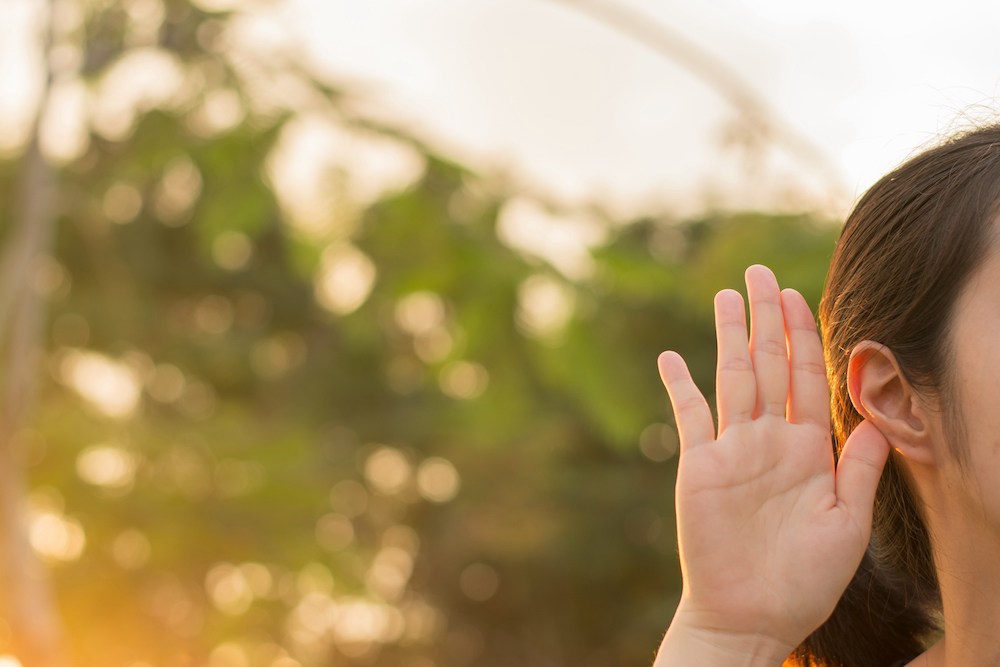How to Stay Positive After a Hearing Loss Diagnosis
Learning that you have hearing loss can bring many emotions, from

By: admin | April 24, 2025
Travel opens up new experiences and adventures, but it can also bring unexpected challenges to your ear health. Whether you’re flying to a distant country, driving through mountain passes or exploring different climate zones, your ears are constantly adjusting to changing conditions. That sudden pain during takeoff, the muffled hearing after a long flight or the discomfort when moving between different altitudes – these are common experiences that can affect your travel enjoyment.
Your ears are surprisingly sensitive to environmental changes that occur while traveling. Pressure differences, humidity shifts, exposure to new allergens and even the noise levels in different settings can all impact how well you hear and how comfortable your ears feel. When ear problems arise during a trip, they can distract from the experiences you’ve been looking forward to and potentially cause lasting discomfort. Taking steps to protect your ear health isn’t just about preventing pain – it’s about ensuring you can fully participate in and enjoy your travel experiences.
Travel can be exciting, but it also presents some unique challenges for your auditory health. Whether you’re flying, driving or using public transportation, changes in altitude, pressure and noise levels can all have an effect on your ears. Airplane travel, for example, often causes that familiar “ear-popping” sensation due to rapid changes in cabin pressure. For some people, especially those with congestion or sinus issues, this can lead to discomfort or temporary hearing changes. Even long drives at high speeds with the windows down or music turned up can expose your ears to sustained noise levels that may be harmful over time.
Beyond physical pressure and sound exposure, travel can also disrupt your regular hearing care routines. If you wear hearing aids, you might find yourself in unfamiliar environments with different acoustics or background noise levels that make conversations more difficult to follow. Being in crowded or noisy tourist spots, struggling to hear announcements in transit stations or not having access to your usual hearing supplies can all complicate the experience.
Changes in altitude – especially rapid ones – can have a noticeable effect on your ears, primarily due to shifts in air pressure. When you ascend in elevation, like during a flight or a drive through mountainous terrain, the air pressure around you decreases. Your middle ear, which is connected to your throat via the eustachian tube, tries to equalize the pressure on both sides of the eardrum. If it can’t adjust quickly enough, you may feel a sense of fullness, pressure or even mild pain in your ears. This sensation is commonly referred to as “ear barotrauma” or “ear popping,” and it can occur during both takeoff and landing on an airplane or when driving up or down steep elevations.
For most people, this discomfort is temporary and resolves as the pressure equalizes naturally – sometimes with a yawn, swallow or chew. However, for those with allergies, colds, sinus congestion or existing ear issues, equalizing pressure becomes more difficult. Blocked or swollen eustachian tubes can trap air or fluid in the middle ear, intensifying the pressure and discomfort. In some cases, this can lead to temporary hearing changes or feelings of dizziness and imbalance. While these symptoms often go away shortly after returning to a stable altitude, repeated exposure or more severe cases may require an audiologist to evaluate the situation further.
Being proactive about ear health while traveling is essential. Recognizing early signs of ear issues can prevent more serious problems down the line. For example, you might notice a slight ringing in your ears or feel like your hearing is muffled. These could be early signs of potential hearing changes that need attention. Other common indicators include a feeling of fullness in the ears, a dull ache or trouble understanding speech clearly in noisy environments. Taking note of these symptoms – especially if they happen repeatedly while flying or changing elevations – can help you track patterns and catch problems before they progress. Even minor discomfort that lingers after a trip might point to something that needs professional evaluation.
If you start experiencing these symptoms, it’s important not to ignore them. Try some simple remedies such as yawning, swallowing or chewing gum to help equalize the pressure in your ears. Staying hydrated and using filtered earplugs during flights may also help reduce pressure changes. If these symptoms persist or worsen, it would be wise to consult with an audiologist as soon as possible. Delaying care can lead to complications like fluid buildup or infection, which may require more intensive treatment.
Whether you’re taking a refreshing dip in the pool or snorkeling in the ocean, it’s important to take steps to protect your ears. Water entering your ears during swimming or other water-based activities can sometimes lead to an infection known as swimmer’s ear. This issue, while usually not serious, can cause discomfort and potentially temporary changes in hearing.
Wearing properly fitted earplugs designed for water use is one effective way to keep water out of your ears. Additionally, thoroughly drying your ears after swimming can help prevent any lingering moisture from causing problems. It’s also a good idea to avoid swimming in water that appears dirty or contaminated as this could increase the risk of infection. Taking these precautions will help ensure that nothing hinders you from enjoying all the aquatic fun while maintaining good ear health.
Popular tourist destinations can be surprisingly noisy. Whether it’s a bustling city street, a packed concert venue or a crowded theme park, the constant exposure to high volumes can take a toll on your hearing. Sudden or prolonged noise – like honking traffic, loudspeakers or firework displays – can strain your ears, especially if you’re moving between several noisy locations in a single day. These environments often push sound levels above what’s considered safe, and without protection, your ears may experience temporary or even lasting effects. Just a few hours in a loud setting without ear protection can lead to muffled hearing, ringing in the ears or ear fatigue.
To protect your hearing while still enjoying these experiences, it helps to plan ahead. Carrying a pair of discreet, high-fidelity earplugs can make a big difference, lowering volume without distorting sound quality. Try to take occasional breaks in quieter spots to give your ears a rest. If you’re attending an event with amplified music or large crowds, distance yourself from speakers or other obvious sources of loud noise when possible. Over time, consistent exposure to these environments without proper precautions can gradually wear down your hearing.
Our bodies are made up mostly of water, and this includes the ears. Adequate hydration helps ensure that all parts of our body function optimally, and this holds true for our ears as well. When we’re dehydrated, it can affect the levels of fluid in our ears which are vital for hearing. This could potentially lead to issues such as dizziness or balance problems.
So how can you ensure proper hydration during your travels? It’s simple – make sure to drink plenty of water throughout the day! Carrying a reusable water bottle is a great way to remind yourself to stay hydrated. Also, try to limit intake of caffeinated drinks or alcohol as they can lead to dehydration.
With some careful planning and a few smart strategies, you can enjoy your travels just as much as anyone else. One of the most important things to remember is to always carry extra batteries or chargers for your hearing aids. It’s easy to forget about this in the excitement of travel, but running out of power can quickly turn a fun trip into a stressful situation. Having backups on hand will give you peace of mind and ensure that you’re always ready for the day’s adventures.
In addition, consider informing your travel companions about your hearing loss if they’re not already aware. This way, they can help make sure that you’re included in conversations and activities. They might also be able to assist with communication challenges that could arise during the trip.
Finally, don’t hesitate to ask for accommodations when needed. Whether it’s requesting a hotel room with visual alert devices or asking flight attendants for assistance during air travel, don’t shy away from advocating for yourself.
When it comes to maintaining good ear health on the go, being prepared is half the battle. A well-stocked travel kit can help you manage unexpected ear issues that might crop up while you’re away from home. Different environments – like dry airplane cabins, humid tropical locations or high-altitude mountain regions – can all affect your ears in different ways. Having a few essentials with you can make all the difference in staying comfortable and preventing minor issues from escalating into something more serious.
Start with a reliable set of earplugs. These come in handy for noisy flights, concerts or even just sleeping in unfamiliar surroundings. If you’ll be swimming, waterproof earplugs can help prevent moisture from entering the ear canal, which reduces the risk of infection. For hearing aid users, a small maintenance kit is essential. This should include extra batteries or a portable charger, a cleaning brush, wax removal tool, drying container or dehumidifier, and a soft cloth for wiping down devices. Keeping hearing aids clean and dry is especially important when traveling, as changes in temperature, humidity and routine can lead to buildup or performance issues.
Having quick remedies at hand can help alleviate these minor discomforts and keep your travels enjoyable. For instance, chewing gum or swallowing frequently can help equalize ear pressure during flights or drives through high-altitude areas. If you’re experiencing a blockage sensation in your ears, over-the-counter ear drops may provide relief by helping clear any build-up. Always remember, these are temporary solutions, and if discomfort persists even after trying these methods, it’s best to consult with an audiologist upon return from your trip.
Travel should be a time of discovery, not discomfort. Being aware of how changing environments affect your ears can help you better prepare for the journey ahead. From the cabin pressure in an airplane to the background noise in a bustling city square, these shifts may seem minor but can quickly lead to issues if your ears aren’t ready for them. A bit of preparation – like packing ear protection, monitoring symptoms and caring for hearing devices – can go a long way in keeping you comfortable throughout your trip.
Staying ahead of potential ear problems helps you avoid unnecessary interruptions while you’re away. Even mild discomfort can make it harder to enjoy sightseeing, keep up with conversations or get the rest you need after a long day. With a bit of planning and the right tools in your bag, you can keep your ears comfortable and stay focused on what really matters: the people you meet, the memories you make and the places you explore. If you’re dealing with hearing concerns before or after a trip, we’re here to help at Ashbrook Audiology in Virginia. You can reach us in Danville at (434) 792-2182 or Martinsville at (276) 666-0401.

Learning that you have hearing loss can bring many emotions, from
By: admin | November 18, 2025

When someone you care about begins to experience hearing loss, it is not
By: admin | September 24, 2025

Travel opens up new experiences and adventures, but it can also bring
By: admin | April 24, 2025
